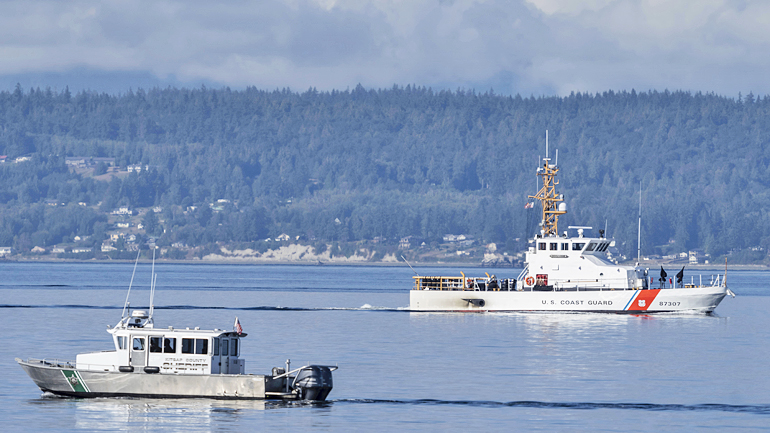SEATTLE (AP) – United States investigators have confirmed that a mechanical issue caused the seaplane crash that killed 10 people off an island in Washington state last year.
The National Transportation Safety Board (NTSB), which investigated the September 4, 2022, crash, said on Thursday that a single component of a critical flight control system failed, causing an unrecoverable, near-vertical descent into Puget Sound’s Mutiny Bay near Whidbey Island.
About 85 per cent of the aircraft was recovered from the ocean floor several weeks after the crash.
NTSB investigators examining the wreckage found that a component called an actuator, which moves the plane’s horizontal tail and controls the airplane’s pitch, had become disconnected. That failure would have made it impossible for the pilot to control the airplane.
Evidence showed the failure happened before the crash, not as a result of it, investigators concluded.
The plane was a de Havilland Canada DHC-3 Otter turboprop operated by Renton-based Friday Harbor Seaplanes. It was headed to the Seattle suburb of Renton from Friday Harbor, a popular tourist destination in the San Juan Islands, when it abruptly fell into Mutiny Bay and sank. The pilot and all nine passengers died.

Witnesses said, and video showed, that the plane had been level before climbing slightly and then falling, the NTSB said.
“The Mutiny Bay accident is an incredibly painful reminder that a single point of failure can lead to catastrophe in our skies,” NTSB Chair Jennifer Homendy said in a news release.
Weeks after the crash, the NTSB said the cause appeared to be the disconnected actuator and issued a recommendation that all operators of the DHC-3 planes immediately inspect that part of the flight control system. In early November, the FAA issued an emergency directive to operators mandating the inspections, The Seattle Times reported.
The NTSB in its final report recommends that the Federal Aviation Administration and Transport Canada require operators of those planes to install a secondary locking feature, so “this kind of tragedy never happens again”, Homendy said.
Friday Harbor Seaplanes didn’t immediately respond to an email seeking comment on Thursday.
Lawsuits have been filed in King County Superior Court by the family members of the victims against the aircraft’s charter operator, Friday Harbor Seaplanes; as well as the DHC-3 Otter manufacturer, de Havilland Aircraft of Canada; and the plane’s certificate holder, Viking Air – saying they are responsible for the deaths.
Nate Bingham, who is representing one of the victim’s families, said the plane crashed because of “an antiquated design with a single point of failure.” The companies have not responded to requests for comment about the lawsuits.




